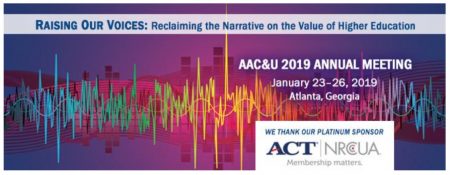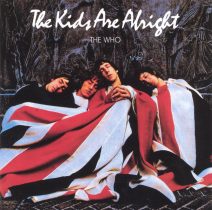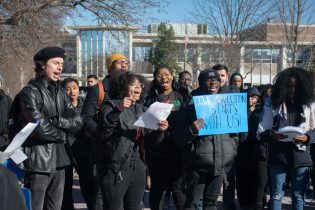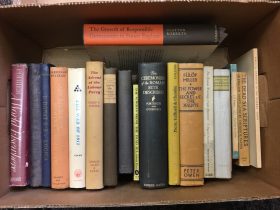New Years Resolution
Trying to post to this blog more often, as well as my Twitter account: @shu_as_dean . Stay tuned…

Trying to post to this blog more often, as well as my Twitter account: @shu_as_dean . Stay tuned…
This will (probably) be my last AAC&U post. The COACHE project at Harvard is doing great work on making sure that faculty voices are at the table when it comes to decision making at universities and colleges:
https://coache.gse.harvard.edu/event/aacu-annual-meeting-raising-faculty-voices-best-practices-cultivating-faculty
You can expect to hear Dr. Buckner and me talk about this research and the associated best practices in the near future.
An interesting topic that arose at the conference during the discussion of AAC&U’s VALUE rubrics was the relationship between equity and assessment. A summary of the issue can be found here:
http://learningoutcomesassessment.org/documents/OccasionalPaper29.pdf
Two points:
1) If we care about equity in higher education, we should care about valid assessment: when coupled with demographic information, assessment tells us how different segments of our student population are faring in their education, which is essential if we are seeking equitable outcomes in higher ed. Assessment helps us make sure that all of our students are being served, regardless of ethnicity, cultural background, etc.
2) When we are not intentional and sensitive to equity, however, assessment can harm the students whom we most need to help. Many faculty repurpose some version of the assessment models under which they themselves were successful in college, but not all students are equally adept at demonstrating their learning in the same ways. Cultural differences, in particular, can interfere with validity of assessment techniques. This is famously the case with IQ tests. (The history of the measurement of cognitive aptitude is full of stories of methological mispractice: the mismeasurement of cranial capacity, etc.)
By making learning outcomes and the means for demonstrating them explicit, we even the playing field, reducing the advantage of upper middle class (usually white) students who learned how to play the unwritten game of academic success in high school.
When we take assesssment for granted, or disparage it as a burdensome bureaucratic process, are we harming our students?
I attended today’s morning session on the latest AAC&U employer survey. This most recent report included hiring managers as well executives.
The continuing good news for liberal education is that employers are looking for students with broad education. Previous surveys have indicated that employers prefer a portfolio a skills and dispositions more than major-related schools, and that trend continues. Some important highlights:
• Employers find e-portfolios combined with transcripts much more powerful than transcripts alone.
• Employers value Oral Communication skills more than any other skill domain, but there is a significant gap between their expectations and what the students can do. Editorializing a little, this should give us pause about what we’re delivering to students in this area.
• Among college experiences, employers value internships most, followed by community projects with diverse populations, writing-intensive courses, research projects with peers…
One interesting insight that came out of the discussion. In their free responses, employers indicate that they value the dispositions that a college education develops: patience, determination, resourcefulness (grit?), an ability to work with others, an ability to confront challenges…

I’m resurrecting the Dean’s Bookshelf and blogging from the 2019 AAC&U in Atlanta. The opening plenary panel was focused on “Code Switching: Making the Case for Liberal Education Amidst Critics, Skeptics, and Trolls.” Some highlights:
Brandon Busteed, President of Kaplan University Partners and formerly of Gallup, argued that we have a branding problem. We should stop using the term “liberal arts,” which prospective students don’t understand (“I’m not liberal or artistic”) and start unpacking what the liberal arts do: “broadly prepare students for success,” help solve “unscripted problems,” etc…. A summary of an argument can be founded here: https://news.gallup.com/opinion/gallup/216275/higher-education-drop-term-liberal-arts.aspx . He also stressed something that I have been hammering home: the importance of critical importance of internships for all students, especially those in the liberal arts: https://news.gallup.com/opinion/gallup/222497/why-colleges-internships-requirement.aspx . We should be selling a “’universal education’ coupled with practical experience.”
Gail Mellow, the president of CUNY’s LaGuardia Community College talked about her diverse student body that yearns for the American Dream but does not have a rich understanding of what that could be. If she had a magic wand, she would require every faculty members go out into the community to tell stories of student transformation through higher education.
Eboo Patel, Founder and President, Interfaith Youth Core (sic), invoked Alisdair MacIntyre’s notion that the colleges “initiate students into conflict.” Only the liberal arts can prepare students for living in a religiously, culturally, and politically diverse America.
In sum: drop the jargon, embrace the role of liberal education in a pluralistic democracy, connect with students, communities, and their needs, and above all keep telling our story whenever and wherever we can.

I have been remiss in my blog posts, so I’ll try to kill two birds with one stone. On April 23rd, I will present the Petersheim Exposition keynote, entitled “What the Research tells Us about Undergraduate Research.” I think that this is an important topic for the college, and I’m suggesting three recent readings from Chronicle on the topic:
“What was Liberal Education” (https://lareviewofbooks.org/article/what-was-liberal-education/) by Richard Eldridge, is a worthwhile read. Very succinctly and eloquently, it tell a familiar story–the rise of the ideals of liberal education among the Greeks and its crisis during the modern period–and expresses the anguish of the author in the face of his students’ embrace of neoliberalism (and these are Swarthmore students, no less!). Undoubtedly, there is much be criticized, here, but I feel like this could have been written by any number of people whom I know and respect.
Thank to Vicente Medina (Philosophy) for passing this on. If this sounds familiar, Eldridge spoke on campus last spring.
 A recent report from the American Academy of Arts and Sciences refutes the claim that Humanities graduates are miserable and unemployed. This report is based on data from the Gallup-Purdue index, which measures satisfaction and well-being, in addition to earnings.
A recent report from the American Academy of Arts and Sciences refutes the claim that Humanities graduates are miserable and unemployed. This report is based on data from the Gallup-Purdue index, which measures satisfaction and well-being, in addition to earnings.
Some takeaways:
“Despite the uncertainty about the connection between their degree and their job, humanities graduates reported job satisfaction at levels comparable to graduates from almost every other fieeld.”
“Experience in the workforce appeared to play an important role in measures of satisfaction with the work humanities graduates perform.”
“In the oldest cohort, humanities graduates were near the highest levels of reported satisfaction on this measure [‘At work, I have the opportunity to do what I do best every day’].”
The is a lot of valuable information in this report, and in the index, that can help us better serve our humanities majors.

The recent student protests on campus have created a sense of urgency around diversity at Seton Hall and, more specifically, the new college core diversity requirement in the College of Arts and Sciences.
For those who have not been following this issue closely for the last few years, the Atlantic has a good cheat sheet. I also recommend this article in the Chronicle about how Evergreen State, one of the most progressive universities in the US, has struggled to accommodate both academic freedom and student demands. Finally, this short piece from CCAS (the national association of Colleges of Arts and Sciences) proposes some common sense solutions.
Oh yes: and this is Black History Month. Here is a schedule for SHU events:

I recently acquired these books which belonged to my Grandfather:
First come, first served!